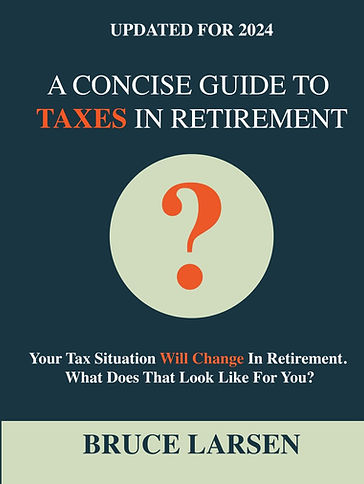Taxes on Retirement Investments: What You Need to Know
Most individuals planning their retirement focus their efforts on generating enough money to maintain their desired lifestyle. Many people ignore the essential role which taxation plays in shaping the value of their retirement funds. The amount you receive after taxation from your retirement investments decreases because of the taxation applied to those investments. Knowledge about tax effects on retirement investments enables better financial planning while keeping you in possession of more money earned. By understanding how taxes work on various retirement accounts, you can make smarter decisions that safeguard your financial future.
Types of Retirement Investment Accounts and Their Tax Implications
1. Traditional 401(k) and IRA
By investing into 401(k) plans through traditional accounts and IRAs you can lower your taxable income for years when making contributions while saving for your retirement. The process of withdrawing funds in retirement results in taxable income that belongs to the category of regular income. Your tax rate determination depends on your present income level when making withdrawals. These accounts are ideal for those who expect to be in a lower tax bracket during retirement.
Key Considerations:
• Required Minimum Distributions (RMDs) start at age 73 or age 75, depending on year of birth, forcing you to withdraw a certain percentage annually.
• If your income is high in retirement, your tax bill could be larger than expected.
• Consider strategies like Roth conversions to manage future tax liabilities and avoid a sudden spike in your tax obligations.
2. Roth 401(k) and Roth IRA
The money you contribute to Roth accounts comes from taxed funds because you will not receive an immediate tax deduction. Tax-free retirement withdrawals along with earnings are permitted when you stick to the approved rules. These accounts are particularly beneficial if you anticipate higher tax rates in the future.
Key Considerations:
• No RMDs for Roth IRAs, allowing your money to grow tax-free for as long as you want.
• Tax-free withdrawals can help keep you in a lower tax bracket.
• A Roth conversion may be a good strategy for reducing future tax burdens, especially if you expect higher tax rates in retirement or receive other taxable income.
3. Taxable Investment Accounts
Unlike retirement-specific accounts, taxable brokerage accounts don’t have special tax advantages. When you sell investments, you may owe capital gains taxes:
• Short-term capital gains (held for less than a year) are taxed as ordinary income.
• Long-term capital gains (held for more than a year) are taxed at lower rates, typically 0%, 15%, or 20% depending on your total income.
Key Considerations:
• Selling assets strategically can help reduce your tax bill.
• Using capital losses to offset gains (tax-loss harvesting) can be an effective tax-reduction strategy.
• Dividends and interest income may also be taxed, so asset placement matters.
Mid-Centered Paragraph (New Addition):
As retirement approaches, understanding the tax rules for each type of account becomes increasingly important. Not all investment income is treated the same, and overlooking these differences can lead to unpleasant surprises. For example, failing to account for how Social Security benefits interact with withdrawals from retirement accounts may result in a higher combined tax bill. Being proactive with tax planning helps preserve more of your savings and reduces the risk of outliving your funds.
Strategies to Minimize Taxes on Retirement Investments
1. Diversify Across Tax Buckets
By holding assets in tax-deferred, tax-free, and taxable accounts, you can control when and how you pay taxes in retirement. This flexibility can help reduce overall tax exposure.
2. Plan Your Withdrawals Wisely
Withdraw from taxable accounts first, then tax-deferred, and finally tax-free accounts like Roth IRAs to manage your tax bracket effectively. Coordinating withdrawals with Social Security and other income sources is also important.
3. Consider Roth Conversions
Converting some of your traditional IRA or 401(k) savings to a Roth IRA during lower-income years can help reduce future tax burdens. Doing this gradually over time can spread out the tax impact and optimize your retirement income.
Final Thoughts
Understanding how taxes affect your retirement investments can make a huge difference in your financial security. With proper planning, you can minimize your tax burden, maximize your retirement income, and enjoy the lifestyle you’ve worked so hard for. Taking the time to develop a tax-efficient withdrawal strategy now can save you thousands of dollars over the course of your retirement. Consulting a financial advisor or tax professional can help tailor these strategies to your unique situation and ensure you’re making the most of every dollar saved. Visit Now













